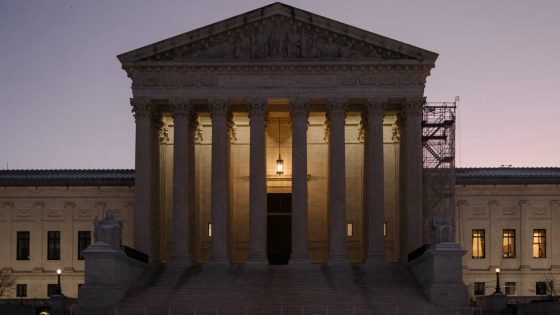On February 25, 2025, the U.S. Supreme Court heard arguments regarding Texas death row inmate Ruben Gutierrez’s plea for DNA testing to prove his innocence in a 1999 murder case. Prosecutors maintain that the new evidence will not impact his conviction for the stabbing death of 85-year-old Escolastica Harrison.
- Ruben Gutierrez claims new DNA evidence proves innocence.
- Texas prosecutors argue testing won't affect case.
- Supreme Court heard arguments on DNA testing request.
- Execution was delayed just before scheduled time.
- Gutierrez seeks testing of crime scene evidence.
- Case focuses on death penalty, not innocence.
Ruben Gutierrez was convicted and sentenced to death in 1999 for the robbery and murder of Escolastica Harrison. Prosecutors alleged that Gutierrez and two accomplices planned to lure Harrison out of her mobile home to rob her, leading to her fatal stabbing inside her residence. Throughout his incarceration, Gutierrez has maintained he did not enter Harrison’s home or intend any harm.
For over a decade, Gutierrez has sought access to physical evidence from the crime scene, including bloodstained clothing and nail scrapings, which he believes will not match his DNA. His legal team argues that this evidence could demonstrate his lack of involvement in the crime.
- Gutierrez’s execution was halted by the Supreme Court just minutes before it was scheduled.
- This marks the second time such an intervention occurred due to ongoing legal challenges.
- The court’s current deliberation focuses on procedural aspects rather than questions of guilt or innocence.
The Supreme Court appeared divided during arguments about whether Gutierrez should be allowed further testing. While prosecutors argue that results would not change anything regarding his sentence, advocates for justice emphasize the importance of verifying all available evidence before carrying out a death sentence.
The outcome of this case could have significant implications for Gutierrez’s future and broader conversations about fairness within the criminal justice system, especially concerning access to potentially exculpatory evidence.

































